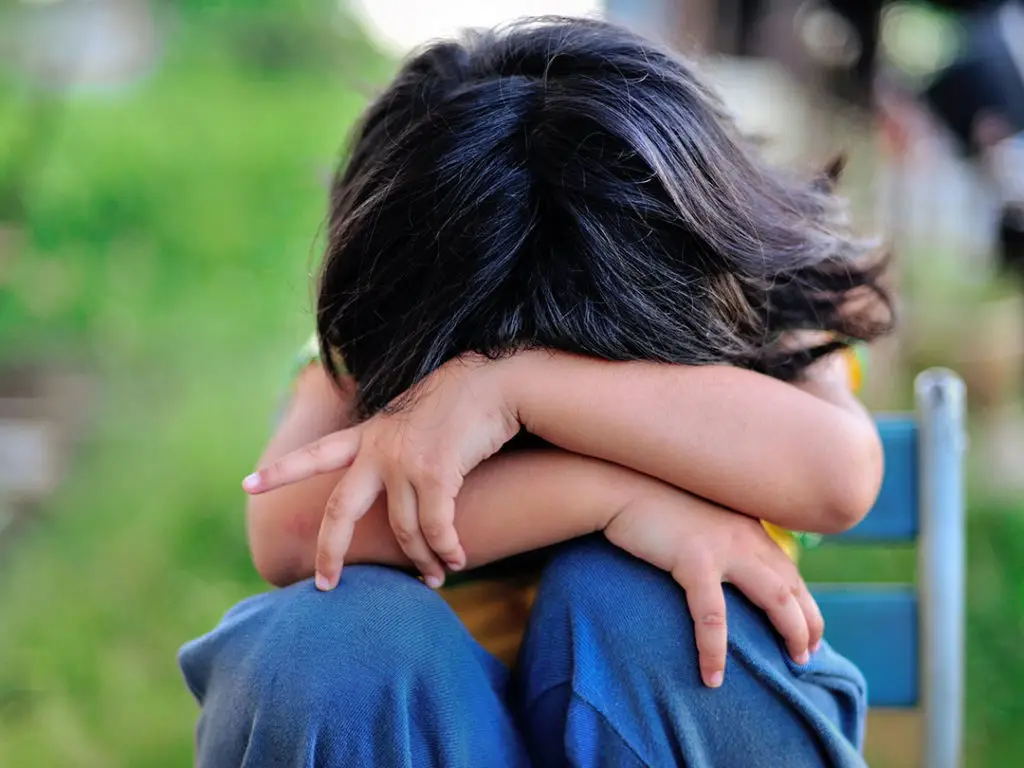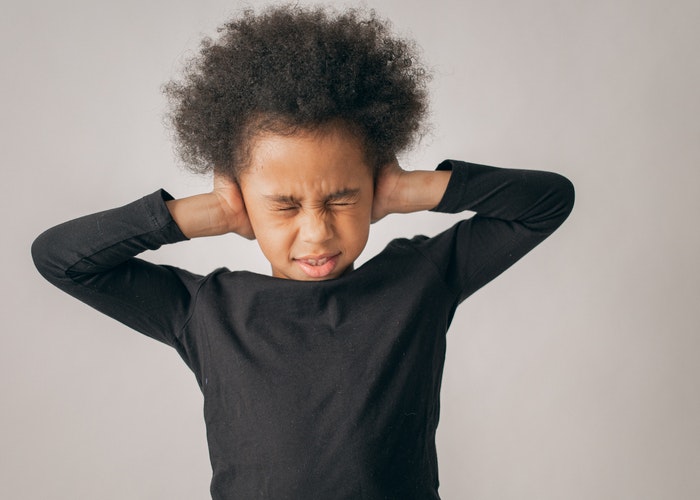We all know how difficult it can be to control our episodes of anger or frustration when we are emotionally affected by certain situations that involve our significant others. But, we also know, although sometimes we forget, how much these emotional outbursts can affect our children when they witness them.
It is interesting to understand how they perceive it, what their points of view are, and what they really feel in front of these difficult situations.
Here, I will describe 7 different feelings a child can experience when mom and dad argue. Depending on the child and on the situation, he or she can feel more than one.

My parents are not happy, therefore, neither am I
Most children are very empathic. Whatever mom or dad is feeling in a moment, is what they tend to feel. Since they cannot understand that these fights or arguments are only transitory events and, many times, when the storm passes, everything returns to normal, they generalize the situation, assuming that mom or dad are not happy at all. Therefore, they can not be either. Kids’ minds, depending on the age, usually function in what is called “concrete thinking level,” which means that they perceive the information from the outside world as “black or white”, where there are no nuances, there is no middle point, there is no temporary. That’s why sometimes it is more difficult for them than for the adults to normalize certain negative situations.
I do not want to take sides
Even in an extreme situation where the child can recognize the abusive role of one of the parents and the role of a victim of the other, it is tough for them to take sides to either of them. Generally, he or she loves both parents and has a natural tendency to be loyal to this love. That is why, when parents involve children in their disputes or share negative information of the other spouse with the children, it positions them in a crossroads; where if they agreed on with one of the parents they feel that they are gratifying that parent but betraying the other, and vice versa. This situation makes the child feel very anxious and uncomfortable.
I can not stand the screams or the violence
This is the child who takes refuge in “his own world,” away from reality. Depending on age, this refuge will be in his or her toys, video games, imaginary friends, cyber friends, social media, etc. Many times parents want their children to “step on the ground,” but they do not realize that children gravitate to other spheres because what they see in their homes is a hostile or uncomfortable environment that causes them to flee.

It’s my fault
Many children feel that parents are arguing about things where they are the direct or indirect cause. A direct cause could be, for example, when the argument is about norms of upbringing the children, grades at school, time on the computer, on the phone or video games, who are spending more or less time or money on the child, custody battles, etc. The indirect connection could be economic problems, parents anxiety, depression or any other illnesses, relocation, etc. The child who has a tendency to take issues personally will look for reasons to believe that he or she is the cause of these disagreements which will affect his or her self-esteem and self-worth.
I feel it in my body
There are cases in which the child somatizes the tension or sadness of the environment that surrounds him through physical manifestations in his or her body. These manifestations can be in the form of allergies, asthma, frequent colds, some hyperactivity, among others. I am not saying that the only reason that children suffer from these conditions is because of their parent’s arguments of problems. I am only commenting that some sensitive children can be affected by their parents’ marital arguments or fights, hence manifesting their fear or frustration in their own bodies.
A Children or Family Therapist could help to determine this connection.
What I see … I repeat
Depending on the child’s temperament, the tension, arguments, or fights between his or her parents may be manifested as rebellious or bad behavior. This is their way of expressing their discomfort, and often their fear. Apart from that, it may be that their behavior is mimicking the verbal or physical violence that they witness around them. Let’s remember that children learn more from parents’ behavior than from parents’ lectures.
I can solve it
Sometimes more mature children impose the responsibility to themselves of trying to help or mediate in the discussions of their parents. These are the children who tell parents something like please, do not fight; why are you guys fighting? Please, speak as civilized people, etc. Or, they might try to talk to their parents separately and give them “lectures” about how things should be, like if they were not part of the family.
Many parents are pleased when their kids show these “signs of maturity” and think that they are managing the situation very well, without knowing that these precocious behaviors are the result of using some defense mechanisms that are masking a lot of fear and anxiety.
These are only 7 of the feelings that children can experience in situations of fights or arguments between parents that I have decided to share here. There can be more, and they can become more complex.
But, the conclusion is that the children are terrified and restless when the arguments between their parents escalate to screams, insults, and above all, where physical violence is present. It is an indelible mark that will remain in their subconscious mind for the rest of their lives. Within their core beliefs will be the information that this is the standard way of communicating and, depending on which parent they identify with, in their future relationships, they will be violent or submissive, or they will exchange roles, depending on the situation.
In my consultation, I always recommend parents to do this exercise. When you know that the argument with your spouse is coming, because we can predict this, and your children are in front or near, get a hand recorder and place it close to you. Two things can happen:
1) the fact that you look for the recorder and activate it, it can diminish the intensity of the moment or,
2) The discussion will follow its course but when the heat of the moment has passed, and you are able to listen to the recording, you will realize what your children heard.
I am pretty sure that all that you have read above will make sense to you.
Until the next time my Unbeatables!




Leave a Reply